
|
Rhododendron species and varieties. The tree-like,
pink-flowered Rhododendron arboreum hybrids, common in much
of the North Island, have poisonous flowers, and honey made
from them is also toxic. However, all rhododendrons should
be regarded as poisonous.
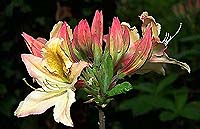
Back to Top
|

|
Rhubarb (Rheum rhabarbarum). The leaf blades are
poisonous on this common vegetable plant.
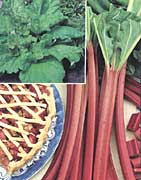
Back to Top
|

|
Spindle Tree (Euonymus europaeus). The pink fruits with
their orange seeds are attractive but poisonous, as are all
parts of the tree. It is the spindle berries that are most
likely to be eaten.
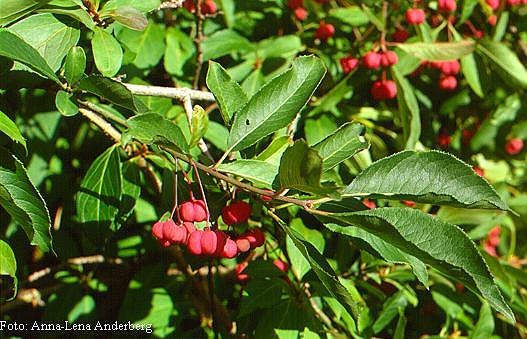
Back to Top
|

|
Spurges (Euphorbia species). All species are poisonous.
The milky sap can burn the delicate lining of the mouth
[see also the unrelated swan plants]. Beware
especially of caper spurge (E. lathyris) which should not be
confused with true edible capers. Note: not all plants with
milky sap are poisonous, for example, the unrelated
dandelions Taraxacum species) which are harmless.
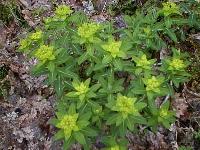
Back to Top
|

|
Stinking iris (Iris foetidissima). Many irises are
poisonous but the main parts likely to be eaten in this
species are the prominent orange seeds, a feature lacking in
other irises.
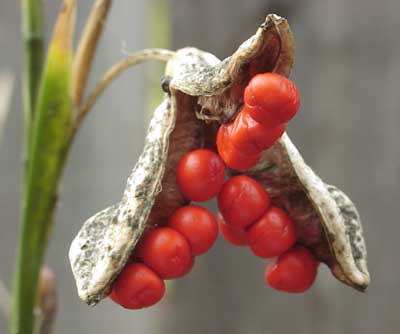
Back to Top
|
|

|
Swan plants (Gomphocarpus fruticosus and G. physocarpus).
These two shrubby plants are so similar that they can be
regarded as the same for all practical purposes. Like all
members of the asclepias family the tissues are full of
poisonous white milky latex, so even the bladder-like fruits
should not be eaten.
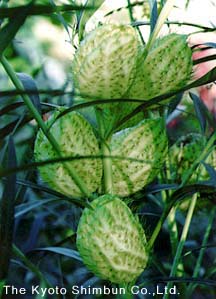
Back to Top
|
|
|
|
|
|
|
|
|
|
|
|
|